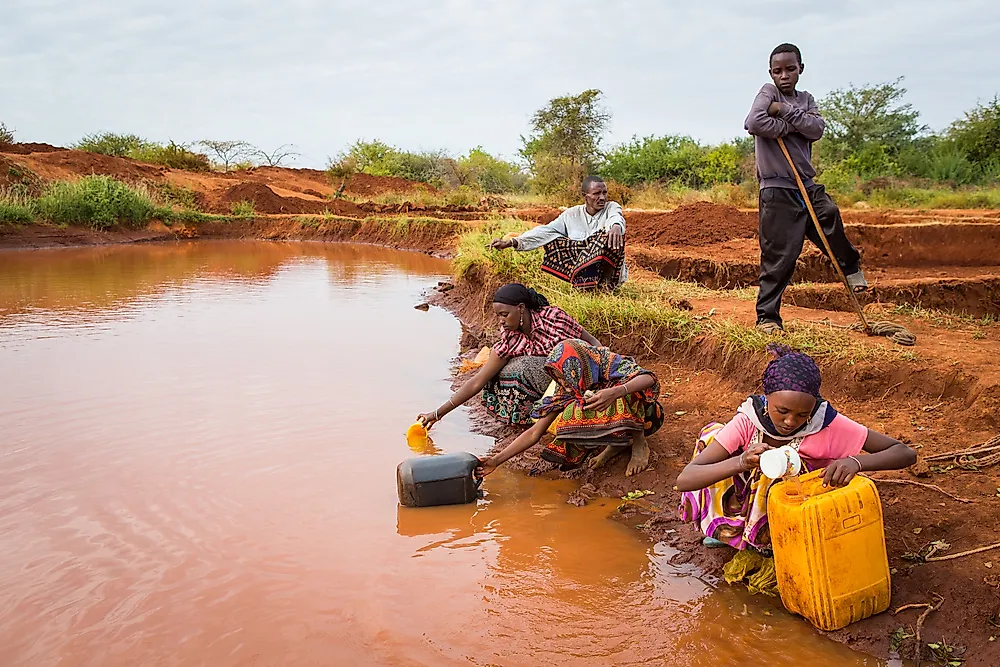What Is the Difference Between Water Stress and a Water Crisis?

The World Economic Forum of 2015 listed water scarcity as a global risk. Water scarcity refers to water shortage, a situation whereby the demand for water is greater than the number of freshwater resources. Within this condition, there is water stress and water scarcity.
Water Stress and Water Crisis
Water stress is a situation whereby issues turn up in an area due to water scarcity. People who lack ample access to potable water are water stressed. The United Nations places the number of water-stressed people in the world at one in every six individuals. According to the Falkenmark Water Stress Indicator, regions getting an annual water supply of below 60,035 cubic feet per person experience “water stress”. The Middle East is the most water-stressed countries in the world. Water crisis, on the other hand, refers to a situation in which water scarcity affects other functions within a government or a state. Lack of portable water to meet the demands of a population may lead to a water crisis.
Climate Change and Water Stress
Popular opinion has it that changes in the climate have caused a decrease in the amount of freshwater available to people. Climate change has resulted in shrinking of lakes and ponds, a reduction in the flow of rivers and streams as well as the receding of glaciers. The Earth has a large supply of fresh water, but many regions in the world still experience water stress due to pollution. Much of this water is not fit for consumption and is unavailable for agricultural and industrial use.
Effects of Water Crisis
Water crisis affects all sectors of the economy and human life. The excessive use of groundwater leads to low agricultural yields while pollution and overuse of water resources harm or lead to loss of biodiversity. According to Water.org and WHO together with UNICEF, about 2.5 billion people do not have adequate access to sanitation which leads to water pollution. Water crisis may cause regional conflicts over water resources which are generally scarce. World Bank states that inadequate sanitation, poor hygiene, and unsafe water causes 88% of waterborne diseases. The time spent in looking for water leads to a loss of economic opportunities which in turn results in poverty, especially among women who are responsible for water collection in most parts of the world.
Overcoming Water Scarcity
For the world’s population to survive, there should be measures to overcome water scarcity problems. Clean water initiatives seek to provide access to clean water. Recycling water will reduce water scarcity as well as improved agricultural practices in areas such as irrigation. Governments and people in general need to make use of advanced technology in water conservation, and an improvement in sewage systems. Another solution to this problem is creating awareness of water scarcity to people who do not experience such issues so that they can help out in its prevention.











